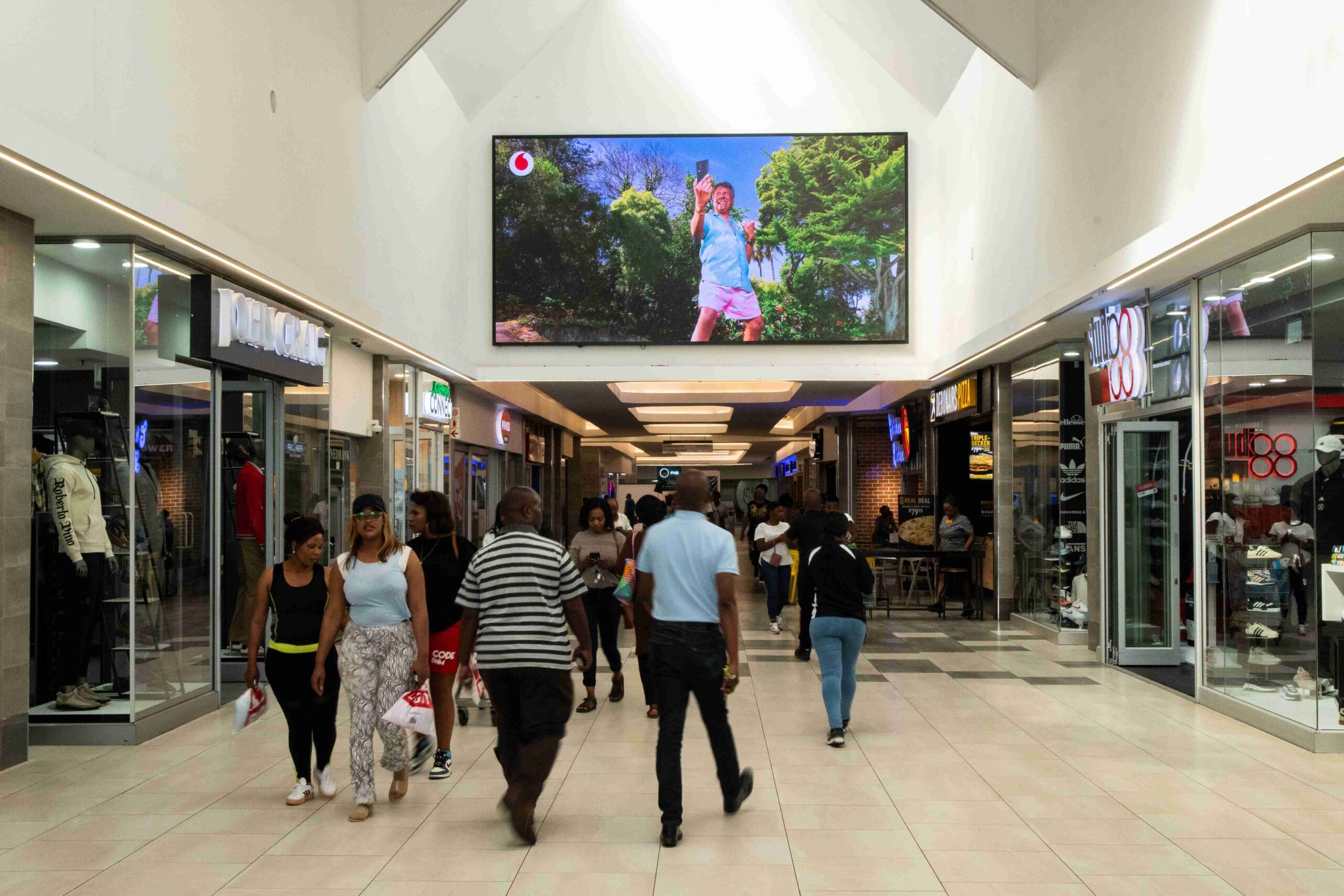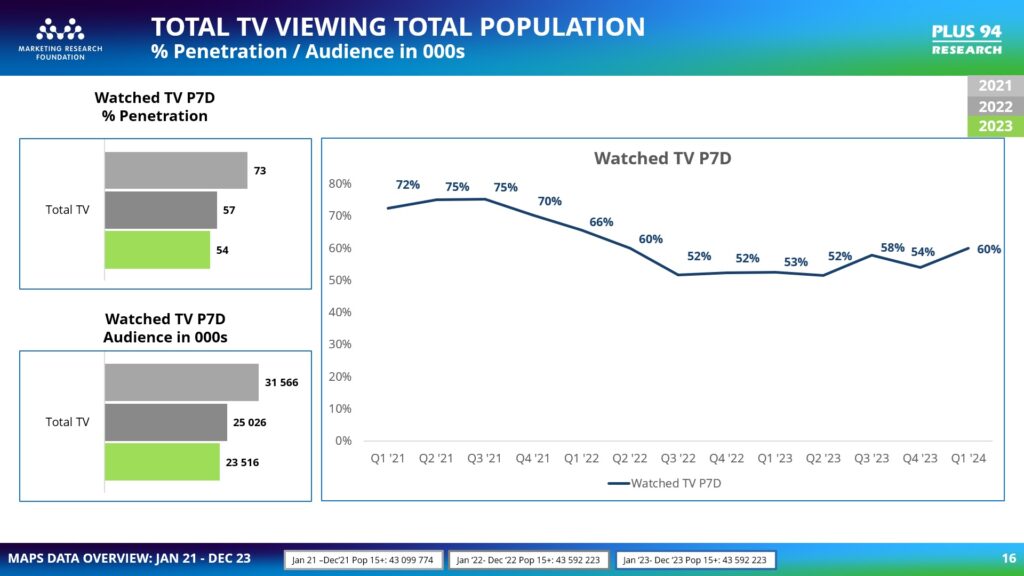The COVID-19 pandemic and resulting lockdowns that wreaked havoc on the broader retail environment were amplified by looting during the July 2021 riots. Additionally, e-commerce and the largely subdued economic climate which immediately followed, left South African shopping malls with significantly lower traffic levels and turnover between 2020 and early 2022. But South Africans – known for their resilience amid uncertainty – feeling the lockdown fatigue and weathering the ever-present loadshedding schedule, steadily began heading back to the malls last year. In 2023, more South Africans are going to the mall. And Mall Ads™ (a Provantage Company) – South Africa’s largest middle-market mall media owner – is seeing big brands capitalising on these self-contained shopping meccas’ return to prominence.
Ongoing loadshedding is among the catalysts for South Africans returning to the bright lights, wi-fi and comfort food at malls. September 2022 had the most loadshedding that year, and on average, malls saw a footfall increase of 11%. With loadshedding entrenched as an everyday occurrence, mall owners are investing in solutions that make them “loadshedding proof”, rolling out solar energy solutions, generator power and backup batteries.
Despite economic challenges, South Africans are still enamoured with a day out at the mall. In 2022, 200,000 square metres of new regional shopping mall space was developed – signalling mall owners’ growing confidence in recovery. In the current year, in mid-market malls, footfall is up 111% compared to 2022. Township malls are up 113% and rural malls are up 109%. And according to BrandMapp 2022, Gauteng’s middle-class people visit an average of almost four different malls regularly. In Cape Town, the average is 2.7 malls; in KwaZulu-Natal, it’s 2.4.
In this ever-expanding environment, there is immense scope to build on the growing trend of immersive, novel and entertaining in-person shopping experiences at malls. “Shopping malls have become more than just retail spaces; they are community assets that serve as safe environments for people to shop, socialise, work and relax. The July 2022 riots revealed that community members value these spaces, as we saw many communities take ownership independently to protect local malls,” says Mzi Deliwe, Provantage Deputy CEO.
He continues, “Most major malls are ‘loadshedding proof’, which means that consumers can count on them as spaces to escape to when the lights go out at home. This is particularly evident in mid-to-lower income communities.”
As South Africans head back to the shopping aisles and mall eateries, more opportunities are emerging for advertisers to connect with captive audiences in mall environments in innovative ways. However, the environment has changed – particularly since COVID-19. Says Deliwe, “By continuously evolving mall media and advertising, we have not only adapted to the changing needs of consumers but also tapped into the immense potential of the mall environment as a powerful advertising channel.”
“We have had to find new ways of appealing to the post-COVID shopper. For example, where touch screens were once the cutting edge, COVID restrictions made those challenging to use. So, we have had to adapt our thinking.
“The dynamic blend of static and digital media within these spaces has transformed the shopping experience while capturing the attention of a receptive and relaxed audience. We can now connect with shoppers at several touchpoints – from static displays in lifts to 3 x 6 large-format digital screens, in-person activations and Mall TV.”
According to Deliwe, the rise of malls in mid-to-lower LSM (Living Standards Measure) population groups has created a greater demand for in-mall media and a renewed focus on this segment for Mall Ads. Mall TV is one of the innovations that addresses the need. Mall TV – a product of Mall Ads – is South Africa’s largest mid-market mall digital place-based network, reaching a monthly audience of over 20 million shoppers.
Deliwe elaborates, “Through Mall TV – nationally positioned in township and regional shopping centres around key commuter nodes – shoppers are engaged by high-interest category content including lifestyle, fashion and sport on large-format digital screens. These screens are strategically placed around high foot traffic environments with excellent viewability and are close to point of purchase.”
With receptive mindsets and more propensity to spend, interaction with consumers in malls is primed to give advertisers return on their spend. Research shows that all shoppers who notice advertisements around them recall specials or sales advertising (34%), followed by the advertising of fast-food stores (24%), banking ads (12%) and clothing retail ads (11%).
“The numbers make a compelling argument for mall media as an increasingly potent platform for reaching diverse audiences. Consumers’ growing willingness to engage with media in malls provides brands with unrivalled opportunities to connect with them,” concludes Deliwe.
For more information on Mall Ads and its evolving mall media solutions, please visit www.mallads.co.za.
- MRF Unveils Latest MAPS® Data - 20th February 2025
- The BRC announces changes to the board and updates for 2025 - 17th December 2024
- Top 50 DSTV TV programmes – October 2024 - 12th November 2024






